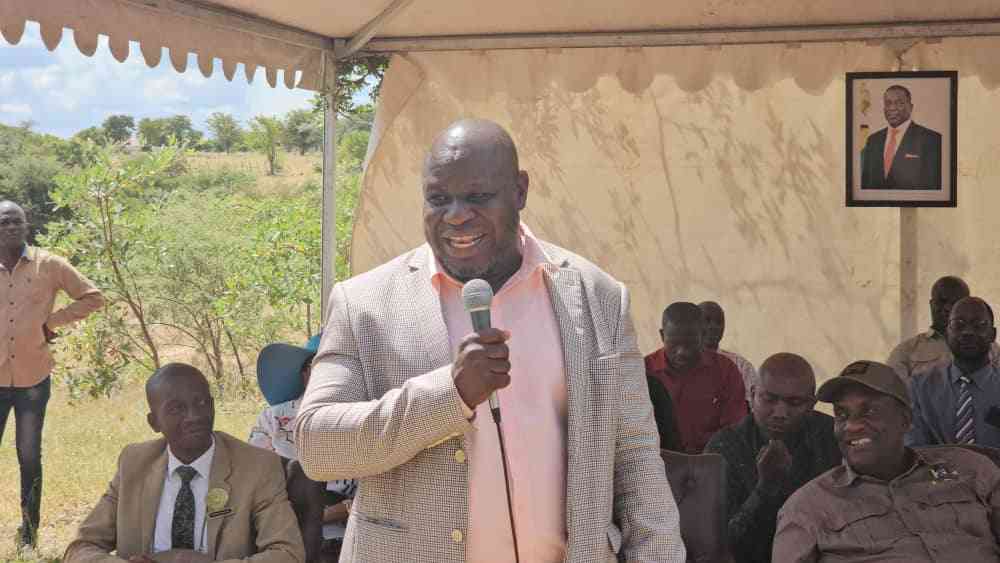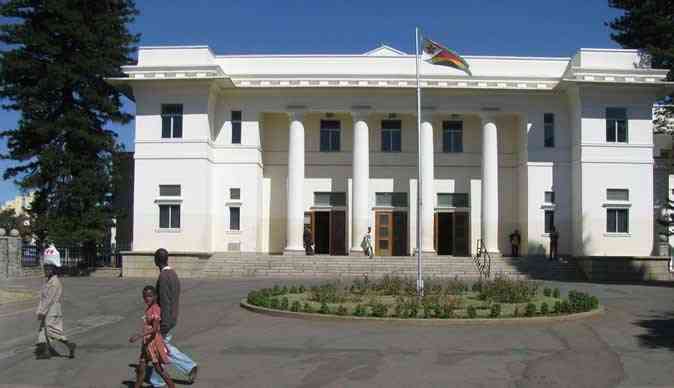
DISGRUNTLED motorists who struggle to navigate the 35km stretch of the pothole infested road from Gweru to Maboleni in Lower Gwelo have expressed concern over the lack of resolve by authorities to rehabilitate Lower Gwelo Road. Commuters are being charged US$3 to US$4 for a distance which used to cost US$2 due to the bad state of the road. A cloud of frustration hangs heavy over motorists on the highway. NewsDay digital and online reporter Evans Mathanda (ND) caught up with the newly-elected Vungu Member of Parliament in Lower Gwelo Brown Ndlovu (BN) to discuss his plans to address the current state of the road network. Below are excerpts of the interview.
ND: As the newly-elected Member of Parliament in the Vungu constituency, how do you plan to address the current state of the road network in Vungu constituency?
BN: My plan as guided by government policies will be to ensure that all road networks in Vungu constituency are in a standard and accessible condition, especially the main road that links Vungu constituency with Gweru, Redcliff and Silobela constituencies and Matabeleland North province by extension.
This can only be achievable through lobbying the relevant ministries like the Transport and Infrastructural Development ministry and Local Government ministry which Vungu Rural District Council falls under.

If these two ministries collaborate, the bad state of all major roads in the constituency will be addressed. The Vungu constituency main road, known as Lower Gwelo Road is a strategic road, which when rehabilitated will greatly improve and drive the economic activities of people within the constituency since it is a major link between the Midlands as a whole and Matabeleland North, including the prime holiday resort of Victoria Falls.
ND: What specific steps or initiatives do you have in mind to improve the connectivity and infrastructural development of the Lower Gweru road network?
BN: First and foremost, I will consult all the relevant stakeholders in the constituency, like the traditional leadership, councillors, farmers, business community, DDF, government line ministries and religious communities, among others to get an appreciation from them on which road networks are emotional to them and need priority. After that I will meet with my constituency development committee to discuss, streamline and come up with a priority list of all the road networks in the constituency.
- Redcliff invests in health facilities
- I won’t be balanced, fair towards blood suckers
- It may take one or more generations for Zim to finally be free
- Corpse found floating in Kwekwe River
Keep Reading

I will also engage and lobby the Transport and Infrastructural Development ministry, the Local Government ministry and the Finance ministry to ensure that the issue of our road networks is given the attention and priority it deserves since these road networks have a great potential of significantly driving economic activities that will contribute to the fiscus. This is in line with the government trajectory and policy.
ND: How do you intend to allocate resources and funding for road network development in your constituency, considering limited financial resources?
BN: Considering the limited finances, I will allocate resources and funding for the road network in my constituency in such a way that we prioritise high impact and emotional areas in our road network in the constituency.
Priority will be accessibility and passage on the major road network, considering grading and building bridges on the gravel road network that is used by many people in the constituency.
I will also encourage community participation in providing general labour and locally available resources and food for assets programmes where possible to argument the limited finances from the fiscus. The local business community and development partners where possible will be engaged and encouraged to partner us in our quest to develop our road network in the constituency.
ND: How will you ensure that the needs and priorities of the rural community are adequately considered and addressed in road network development plans?
BN: Since my constituency is largely rural, the rural people are at the forefront of prioritisation and consideration when it comes to addressing the road network in the constituency. I will strive to ensure that access to roads from the villages to the main road, healthcare centres, business centres, police stations and schools, among others will be highly prioritised in my constituency.
ND: Are there any innovative or sustainable approaches you plan to implement to overcome challenges in road network development in Vungu rural constituency?
BN: Apart from lobbying the relevant ministries, my innovative plans to ensure sustainability and overcome especially the financial challenges is to engage and encourage the local community in taking the initiative of taking the road network in their community as their responsibility and use locally available resources like human capital, tools, gravel and others to ensure the roads are accessible and usable even without central government and outside help in the form of business community and development partners. I will look for partners who can help in motivating the community as they participate in using locally available resources to ensure the road network in their communities is accessible.
ND: Apart from the road network, what other initiatives or infrastructural development plans do you have to boost economic growth and opportunities in your constituency?
BN: Apart from the road network I will do my best to market my constituency as a destination of choice when it comes to investment opportunities considering that we have plenty of resources for business infrastructure, like our dam at Insukamini, it can be utilised to invest in and attract tourism through the establishment of recreational facilities.
Insukamini and Maboleni are two good examples where people can buy residential, institutional and commercial stands where they open and run various industries, banks, pharmacies, surgeries, hospitals and many more that can help in boosting economic activities and ensure easy access of services by the local communities.

The government can also open offices to issue births and deaths certificates, IDs and, passports to decongest Gweru urban offices while increasing access to the rural communities to such services since the rural people are poor. Most of these people cannot afford to get into town for these critical services provided by government departments.
I will also strive to ensure that no community in my constituency travels more than 5km to the nearest healthcare centre, resuscitate and increase the number and easy access to dip tanks, schools and police stations. I will lobby for Insukamini and Maboleni to develop and achieve at least town status.
I will work to reduce the scourge of crime, drunkenness, drug and substance abuse and idleness among the youths by lobbying for the building of at least two vocational training centres in the constituency, one at Maboleni and another at Insukamini growth point. Construction of one referral hospital at Insukamini growth point should be prioritised.
We are also prioritising the drilling and installation of solar-powered boreholes and establishing nutrition gardens in every ward to help in improving food security, healthy eating and income generation for local communities. There will also be properly structured fish co-operatives to create employment and healthy eating.
Women and youths should be encouraged to participate in all the economic activities in the constituency. Vocational training centres will help in keeping the youths busy, give them the requisite skills they can use to earn a decent living even without having to be employed. And they will have no time for drug and substance abuse.
Women, who carry the burden of the family, children, the sick and elderly need to be empowered so that they generate their own financial base, hence, we expect them to benefit more from the nutrition gardens and any hands-on training programmes.
ND: How will you engage and involve the local community in decision-making processes regarding road network development and other initiatives, ensuring their voices are heard and their needs are being met?
BN: The community will be the owners of development initiatives, no developmental project will be prioritised or implemented without having been initiated by them.
They will be engaged through our periodic constituency development meetings that I will hold with them at our constituency command centre, where all traditional leaders, councillors, business community, farmers, churches, religious community and government line ministries in the constituency will converge and build a consensus on the development needs in the constituency. This will ensure that everyone's voice is heard and their needs met.










